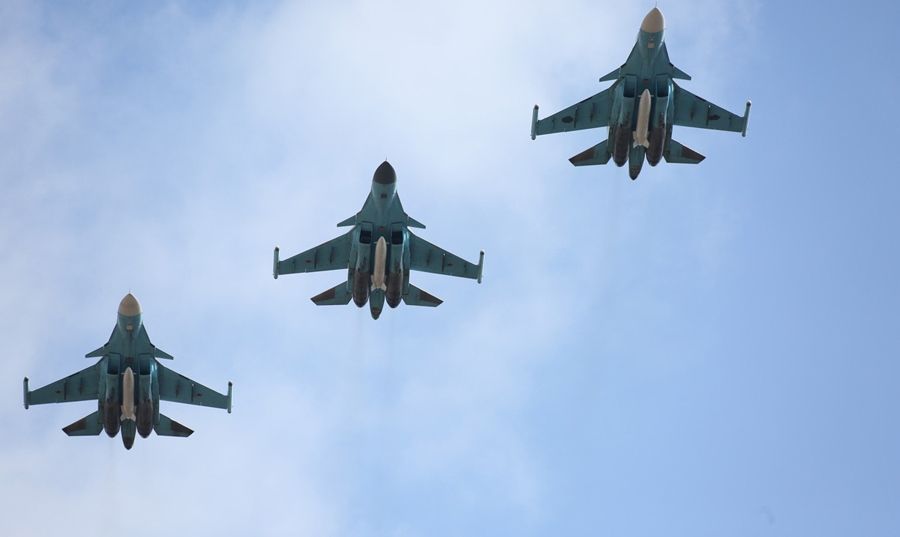Like it or not, Russia’s influence in the Middle East is growing by leaps and bounds. Once you piece together the facts, the picture becomes clear - Russia’s clout is on the rise, making it the go-to nation for the countries of the region.
Moscow just baggeda breakthrough deal to build two nuclear reactors in Saudi Arabia. Four other countries, including the United States, were also in the running, but their bids failed, as Russia offered a better price, efficiency, and terms. Welcoming Russian Minister of Energy Alexander Novak, Saudi King Salman said that the two countries needed to step up their cooperation. Moscow has signed contracts to build nuclear reactors in Jordan (2015) and Egypt (2017). Aramco, Saudi Arabia’s state oil company, has plans to invest $20 billion in Russian liquefied natural gas projects.
This month, the Russian Defence Ministry is launching talks with Lebanon on a military cooperation agreement, which is to include port calls by naval vessels, naval search and rescue operations, the fight against sea piracy, the use of airports as transit stops for military aircraft, joint exercises, the exchange of information, and an influx of Russian military instructors to train Lebanese military personnel.
Tensions are mounting as Israel and Lebanon fail to resolve their differences over their maritime boundaries. So far there have been no results from the US-led mediation efforts. Perhaps the dispute would have a better chance of being successfully negotiated if Moscow took on the role of mediator - a mission for which Russia has thus far shown some real skill in the Middle East. An agreement might be much easier to achieve with Russian companies participating in the project. The countries involved in the exploitation of the offshore gas fields, such as Israel, Lebanon, Cyprus, and Turkey, are on good terms with Moscow. That’s a unique advantage the US lacks. Russia doesn’t take sides and maintains a friendly relationship with everyone, in order to give diplomacy a better chance.
Last summer, Moscow and Baghdad signed a big arms deal. According to the Iraqi Defense Ministry, the first shipment of cutting-edge T-90 main battle tanks arrived in the country on Feb. 15. The agreement was signed for a total of 73 vehicles.The deal was prompted by the T-90’s success in the Syrian conflict. The Iraqi government has askedRussia to include it in the Astana peace process to end the fighting in Syria. It has also reached an agreement with the United States to make big cuts in the American military presence on its soil.
Just before US Secretary of State Rex Tillerson’s visit to Ankara, Turkey announced it hadtyped upanother deal with Russia for a second batch of S-400 long-range defensive missile systems to be delivered in 2021. That system is not technically compatible with NATO’s equipment, so it will have to remain separate from the alliance’s infrastructure.
The leaders in the movement for Palestinian autonomy haveturned to Russia to find a new chief Middle East negotiator to take the place of the United States. The region faces many problems that should be addressed internationally. Russia can do what no one else is able or willing to - organize and host an all-inclusive international conference to promote peace between Israel and Palestine.
The Moscow-sponsored "Syrian Congress of National Dialogue," held in late January, was a step forward in the settlement of Syria’s conflict. America’s diplomatic role in the Syrian conflict is minor. The US is not even an active partner at the only forum in which it is participating - the UN-brokered Geneva talks. Russia is calling the tune in Syria. It’s the only actor able to forestall the looming conflict between Israel and Iran and negotiate a deal between them. Moscow can also mediate between Iran and Saudi Arabia.
Sochi appears to be an important place for diplomatic peace initiatives. For instance, Russia has recently offered to host talks there between the Afghan government and the Taliban, so we should expect to see the mainstream news media featuring the name of that city in their headlines as Sochi welcomes more foreign diplomats and journalists arriving for more landmark meetings.
Another important event has gone almost unnoticed by the mainstream media. On Feb. 13, the head of Russia’s Foreign Intelligence Service, Sergey Naryshkin, held talks with Egypt's President Abdel-Fattah El-Sisi in Cairo to discuss security cooperation. The meeting took place against the backdrop of Egypt’s large-scale military operation to quell terrorist activities in the Sinai Peninsula. It came a day after the Egyptian president met US Secretary of State Rex Tillerson. Russia and Egypt are in talks over a military deal that would allow access to each other’s airspace and air bases. The situation in Libya features prominently on this bilateral agenda. Moscow has made substantial progress in its quest to bring all of Libya’s factions into a peace dialogue.
Recent events testify to the fact that the days of undisputed US dominance in the Middle East are over. Russia’s return to the region as the newest power broker has been a stunning success and reflects Russia’s growingprominence on the world stage.

/image%2F2261057%2F20220401%2Fob_f7458f_img-20220329-123950.jpg)



/image%2F2261057%2F20220408%2Fob_fe923f_img-20220408-004125-098.jpg)
/image%2F2261057%2F20220408%2Fob_1c5934_img-20220408-003910-220.jpg)
/image%2F2261057%2F20220408%2Fob_f86908_img-20220408-004125-098.jpg)
/image%2F2261057%2F20220401%2Fob_6e40de_img-20220328-222213-006.jpg)



/image%2F2261057%2F20220408%2Fob_fe923f_img-20220408-004125-098.jpg)
/image%2F2261057%2F20220408%2Fob_1c5934_img-20220408-003910-220.jpg)
/image%2F2261057%2F20220408%2Fob_f86908_img-20220408-004125-098.jpg)
/image%2F2261057%2F20220401%2Fob_6e40de_img-20220328-222213-006.jpg)
/image%2F2261057%2F20220401%2Fob_de5755_img-20220329-123950.jpg)
/image%2F2261057%2F20220401%2Fob_861aa3_img-20220328-220314-705.jpg)
 Haut de page
Haut de page